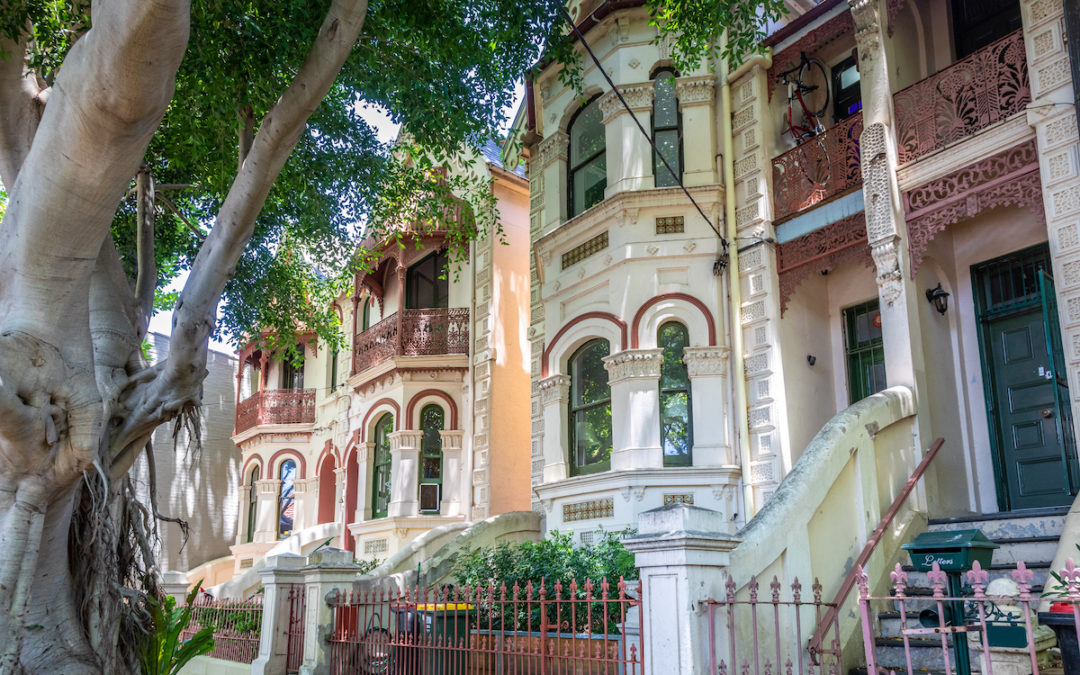Heritage-listed homes offer a unique glimpse into Australian history and are often filled with beauty and character. However, despite the antiquity and romantic features of these homes being a point of value for some, it is important that current or potential owners are aware of the legal hurdles involved when owning or selling a heritage-listed property.
What is Heritage Protection?
If a home is listed on the State Heritage Register, it is recognized as being of historical significance to the state of NSW. Many council areas in Sydney, such as Ku-ring-gai and Hunters Hill, are abundant with heritage listed homes owing to their architectural or cultural value. To find out whether your home or homes near you are heritage listed, you can search the NSW Heritage database here.
A Heritage Conservation Area (HCA) protects an entire area, group of buildings or streetscape with values and characteristics that give it a distinct historical identity. These can include the original purpose or use of the buildings, integrity of the building materials or subdivision patterns. For example ‘The Spot’ in Randwick is a HCA due to its strong sense of identity dating back to its origins as “Irishtown” within the small commercial hub, featuring buildings such as the Ritz Theatre.
The Benefits of Heritage Protection
The historical significance and notable architectural structure, which includes unique details and craftsmanship, is what draws many buyers to heritage-listed homes. Depending on the type of home, people may also pay more for the particular, protected style. For example, devotees of modernist classics and Victorian architecture actively pursue these homes and are willing to pay a high price.
Heritage listed property owners can take assurance in the knowledge that a large apartment block or multi-story carpark will not be freely permitted to be built next door, as the neighbourhood and privacy of these property owners are protected. Further, to compensate for some of the maintenance costs involved with heritage properties, homeowners may be eligible for reduced rates for council and land tax. This requires an application through Heritage NSW.
Renovating a Heritage-Listed Property
Despite their sound structural integrity and historical value, heritage protection and HCAs can be problematic if an owner wishes to renovate their property. Heritage protection can be restrictive and owners find themselves facing limitations that wouldn’t exist if their property wasn’t listed. Restrictions contained in the Heritage Act 1977 (NSW) include the following provisions:
You can make a heritage-listed property ‘liveable’ by making installations or repairs: You are allowed to make installations or similar adjustments to make the home suitable for modern living, provided that they do not detract from the property’s original appearance. Heritage property owners are obligated to ensure that the Minimum Standards of Maintenance and Repair are being met. Other changes will require an Integrated Development Application to be lodged with the local council or directly with the Heritage Council. Generally, upon lodging an application home owners may install contemporary kitchens or bathrooms but the structure of the home and the street façade must be preserved.
Emergency Fund: Older homes do come with the risk of hidden structural damages or other unpleasant discoveries. It is recommended that you keep an emergency maintenance fund in order to make necessary repairs. Home owners can apply for Emergency Works Grants through Heritage NSW for an amount up to $10 000 to address damage incurred during a natural disaster or emergency event, or for work directly related to a heritage benefit.
Valuing Heritage-Listed Properties
Owing to the above restrictions/provisions, there is a concern that a heritage listing will result in lower land values, as potential buyers will not be able to extend or modify their home. Heritage listings can also prevent existing home owners from making alterations or renovations that may markedly increase the value of the property.
Heritage listed homes can often attract more expensive insurance premiums due to the higher risk and cost of restoration and repair. Specialist insurance policies may be required to insure your home is not underinsured.
It is also important to note that a heritage valuation is based on the existing use of the land rather than its zoned development potential. For example, a house would be valued as a dwelling house, even if that property is located in a commercial or residential flat zone. However, a Productivity Commission study recently found that a heritage listing in the North Shore of Sydney can add 12% to a home’s market value.
Contact Etheringtons Solicitors
It is crucial to properly assess the potential benefits and consequences of a heritage listed property before making a financial commitment. As a property owner it is important that you are well informed about factors that may affect the value or structure of your home. At Etheringtons, we can assist you with your property law needs to ensure the best outcome for you and your family. Should you have any further questions, please do not hesitate to call (02) 9963 9800 or via our contact form.

